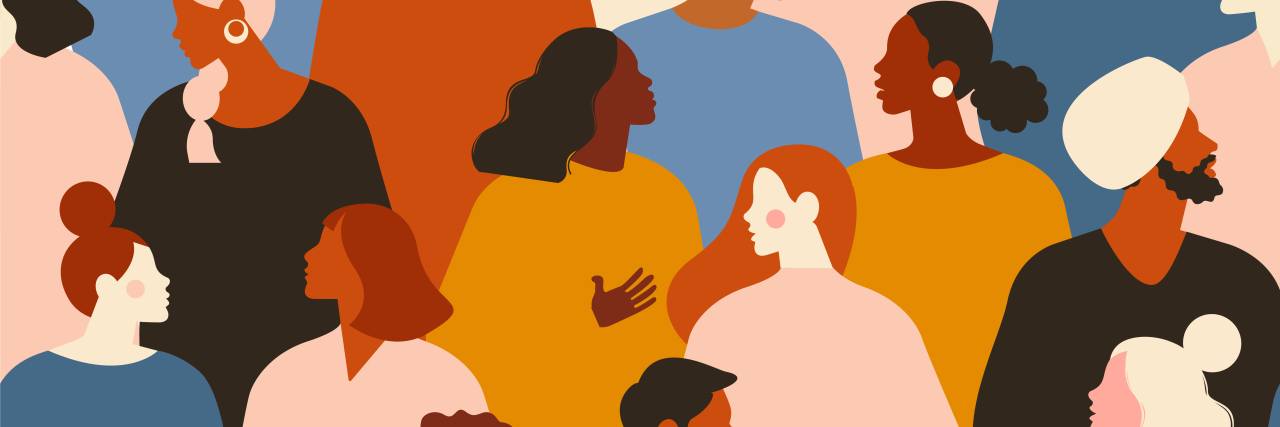With the anniversary of the Americans With Disabilities Act, a lot of disabled people are in an odd position. We’re supposed to be celebrating legislation that’s supposed to ensure accessibility. It’s kind of America’s way of saying “look at what we (able-bodied/neurotypical people) have done for you as a disabled person.” Then we are supposed to clap and cry, or something. However, a lot of people who aren’t in our community don’t understand the ADA.
The Americans With Disabilities Act is supposed to ensure accessibility if you have needs in relation to physically or mentally being in a space. You are supposed to be provided with supports that make these spaces accessible, such as a ramp, an interpreter, or using a stim toy. (Stims/fidgets help people focus and feel comfortable in a physical space.) However, as great as the ADA is, it’s a tad decorative. In the year 2020 many businesses claim they can’t financially handle making buildings accessible. People who need wheelchairs are still harassed if they don’t always need one. People with invisible disabilities are still being told they don’t look disabled or are faking. Fewer than 25% of disabled people attend college. This doesn’t even get into unemployment rates.
Most people in the disabled community are grateful for the ADA. However, “nothing about us without us” often isn’t honored in able-bodied spaces. Often “nothing about us” without us is even forgotten about in spaces for disabled people as able-bodied and neurotypical people still control the spaces as well as who has access to them. Disabled spaces are also primarily white, which leaves out many voices within our community that need to be heard.
I believe people need to be reflecting on a few things about disability rights:
The biggest thing our leadership spaces need is to truly be “nothing about us without us.” This includes government spaces, mass media and companies.
We need to be intersectional as disabled people in our push for representation in media. We also need to push to make sure our representation isn’t only white males. We can be and should be better than that, especially when our community affects many children. We need more voices who are LGBTQ+, varying faiths, various races and have varying degrees of ability.
Our community deserves better than antiquated ideals, especially for the children who will grow up in our community.
We need to fight in solidarity with one another.
We need to listen to Black voices and leaders when they say something isn’t fair or accessible. Listen and stand in solidarity.
We need to listen to Indigenous voices when they say an issue is unfair towards their tribes, is racist, breaks treaties or perpetuates colonialism.
We need to listen to people of different religions when they let us know something is insulting, against thier religion, they have to observe a tradition or that something is sacred to them and deserving of respect.
We need to listen to those who claim no religion and respect that.
We need to believe other people with disabilities or chronic illnesses when they discuss their lived experiences.
We need to listen to LGBTQ+ folks when they tell us something is homophobic, disrespectful, or sexist and respect their pronouns.
We need to have disabled people from these communities in the room when any issues about disability are discussed. All of us deserve to have our voices heard.
We need to keep pushing to be heard in media, on TV, on stages, in workspaces, in offices, in government, in meetings, in music, in tech and in life. We all deserve to be heard, which sometimes means we need to demand that other people listen to us.
Advocate for each other if needed as sometimes strength is in numbers. (But ask permission of the person first in case they are uncomfortable.)
Learn our history, find our history, reclaim our history.
Teach in multiple ways. Don’t just teach disabled people neurotypical standards, teach neurotypicals neurodiverse standards. We don’t have to sacrifice our culture for you. You don’t have to sacrifice yours for us. We just need to have the skills to speak to each other and meet each other where we are at.
Keep fighting!
This story originally appeared on Medium.
Getty image by Lyubov Ivanova.

